How to Identify the Best Diagnostic Center Near Me for Your Healthcare Needs
Table of Contents
- Factors to Consider When Choosing a Diagnostic Center for Your Health Needs
- Understanding Different Types of Diagnostic Services Offered
- Evaluating the Credentials and Experience of Diagnostic Center Staff
- Importance of Location and Accessibility in Selecting a Diagnostic Center
- Checking for Accreditation and Quality Standards in Healthcare Facilities
- Reading Reviews and Testimonials: Insights from Other Patients
- FAQS
- Conclusion
- Related Posts
In today’s fast-changing healthcare world, finding a good 'Diagnostic Center Near Me' really matters if you want quick and accurate medical results. I came across a report from Global Market Insights that says the diagnostics industry could hit over $289 billion by 2026 – that’s pretty huge! This growth is mainly thanks to advances in technology and the rising need for speedy testing. With health issues becoming more complicated, it’s so important to go to a diagnostic center that offers not just a wide range of tests but also uses the latest tech to get precise results. One company that’s been making waves in the IVD scene is Zhejiang Pushkang Biotechnology. Since starting back in 2014, they’ve been all about innovation—developing point-of-care testing (POCT) kits for things like blood clotting, biochemistry, CLIA, and molecular diagnostics. If you’re trying to pick the right center, keep in mind things like the tech they use, how accurate their results are, and how easy it is to access their services—it can really make a difference in your healthcare journey.
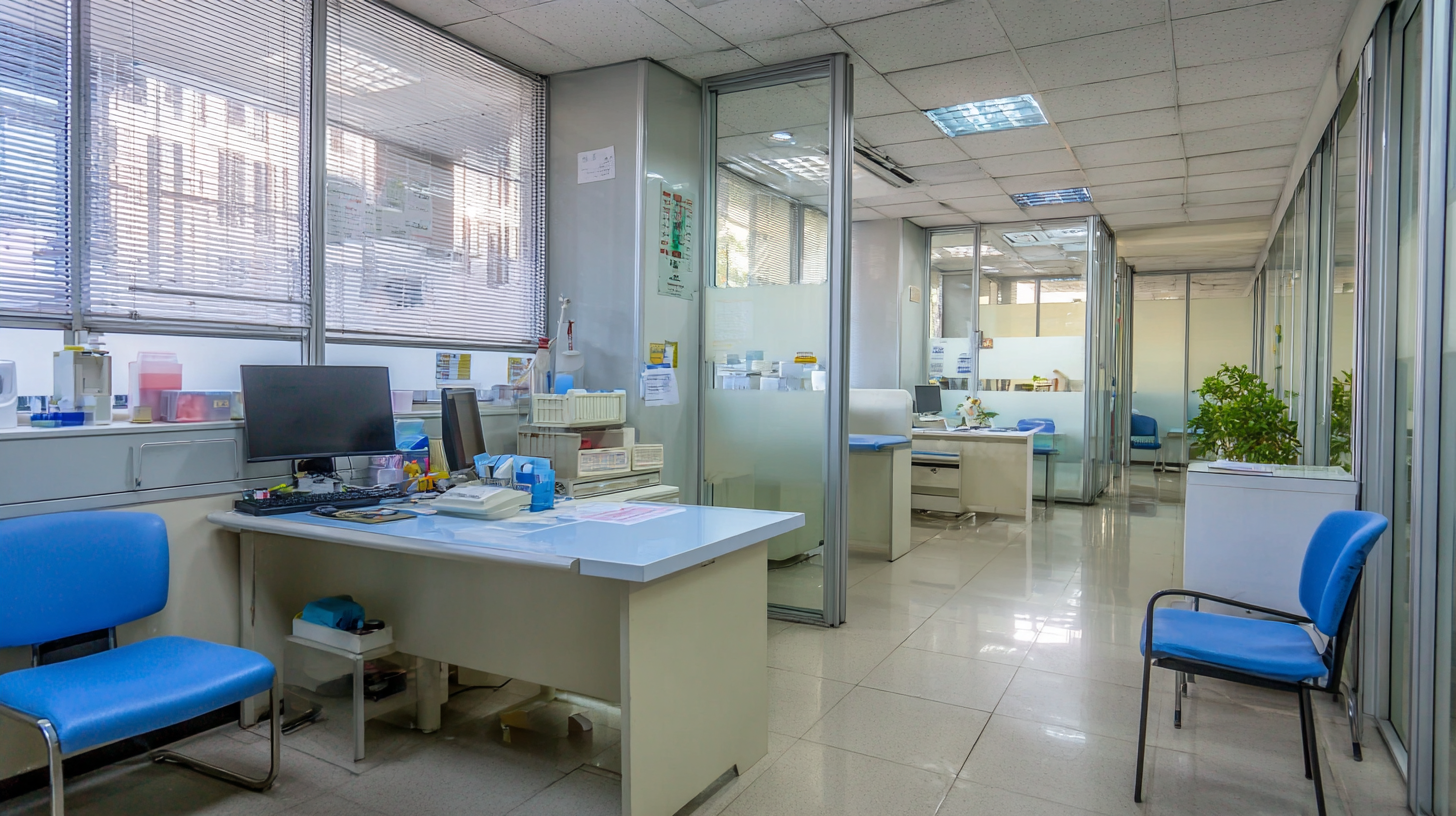
Factors to Consider When Choosing a Diagnostic Center for Your Health Needs
When you're trying to pick a diagnostic center for your health needs, there are a few key things you should keep in mind. I read somewhere that nearly 70% of medical decisions actually rely on lab test results, so it really highlights how important it is to choose a trustworthy diagnostic place. One big factor is whether the center is accredited—places accredited by organizations like the College of American Pathologists (CAP) or The Joint Commission usually stick to high standards in quality and safety. That means you can expect accurate and quick results, which is a huge deal.
On top of that, think about how close it is to you and whether they specialize in what you need. A study I came across in the Journal of Healthcare Quality mentioned that patients who go to local diagnostic centers tend to have better health outcomes because they don’t have to wait as long and can get more personalized care. Also, it’s smart to look at the variety of services they offer. For example, a good diagnostic center should have a range of tests—think advanced imaging, genetic testing, all that—to really match your unique health requirements. In the end, the best choice is a place that combines quality, convenience, and a broad set of services to support you on your health journey.
Understanding Different Types of Diagnostic Services Offered
When you're on the hunt for the best diagnostic center for your healthcare needs, it really helps to understand the different types of diagnostic services out there. You see, effective testing covers a bunch of specialties—things like clinical biochemistry, urinalysis, immunodiagnostics, hematology, and molecular diagnostics. These services are super important because they give accurate health assessments, helping doctors diagnose conditions more precisely and create treatment plans tailored just for you or your loved ones.

Evaluating the Credentials and Experience of Diagnostic Center Staff
When you're choosing a diagnostic center, it’s really important to look into the credentials and experience of the staff. Trust me, this is a key part of making sure you get quality healthcare. The American College of Radiology points out that an accredited facility should have radiologists and technologists who’ve gone through thorough training and are board-certified in their specialties. That way, you know you’re in good hands with professionals who stay updated on the latest tech and medical breakthroughs. Centres that put a spotlight on their staff’s qualifications often tend to have happier patients too — in fact, studies show a 25% boost in trust when staff credentials are right there for everyone to see.
And honestly, experience really counts in this field. The NIH found that professionals with over ten years of experience can improve diagnostic accuracy by around 15%. So, it pays to ask about how long the staff has been in the game and whether they’ve handled similar cases before. Plus, if you notice high staff turnover, that can be a bit of a red flag. A steady team usually means a better environment for training and, ultimately, better care for you — with diagnostics and treatment plans that are more personalized. So, when you're on the hunt for the best diagnostic center, don’t forget to consider the qualifications and experience of their staff — it really does make a difference.
Importance of Location and Accessibility in Selecting a Diagnostic Center
Choosing a good diagnostic center isn't just about the tests they offer — where it's located really matters, too. If it's close to your home or office, it makes life way easier because you don’t have to spend ages commuting or rearranging your day. That’s a big win, especially if you’re dealing with ongoing health issues or need to get tested regularly. Plus, a conveniently placed center can help cut down on the stress and tiredness that often come with medical errands. Instead of stressing over how to get there, you can actually focus on feeling better.
But accessibility isn’t just about how close it is. Things like public transport options, parking, or whether it’s friendly for folks with disabilities all play a part. A really good center understands that different people have different needs and makes it easy for everyone to get there without hassle. Also, flexible hours can make a huge difference — having options for after work or weekends means you don’t have to squeeze appointments into a busy schedule. When location and accessibility are top priorities, it just makes the whole experience smoother, helping you get diagnosed quicker and manage your health better without unnecessary stress.
Healthcare Diagnostic Centers Accessibility
This chart illustrates the distribution of diagnostic centers based on their distance from potential patients. It shows that most centers are located within 5 km, emphasizing the importance of location and accessibility in choosing a healthcare diagnostic facility.
Checking for Accreditation and Quality Standards in Healthcare Facilities
Picking the right diagnostic center really matters when it comes to getting good healthcare. One of the biggest signs that a place can deliver quality care is whether it's accredited. I read in a report by the National Committee for Quality Assurance (NCQA) that facilities with accreditation tend to make patients happier and have better health results overall. If a diagnostic center has certifications from well-known organizations like the Joint Commission or the College of American Pathologists, it usually means they follow strict quality standards — so you can trust they’re doing things the right way.
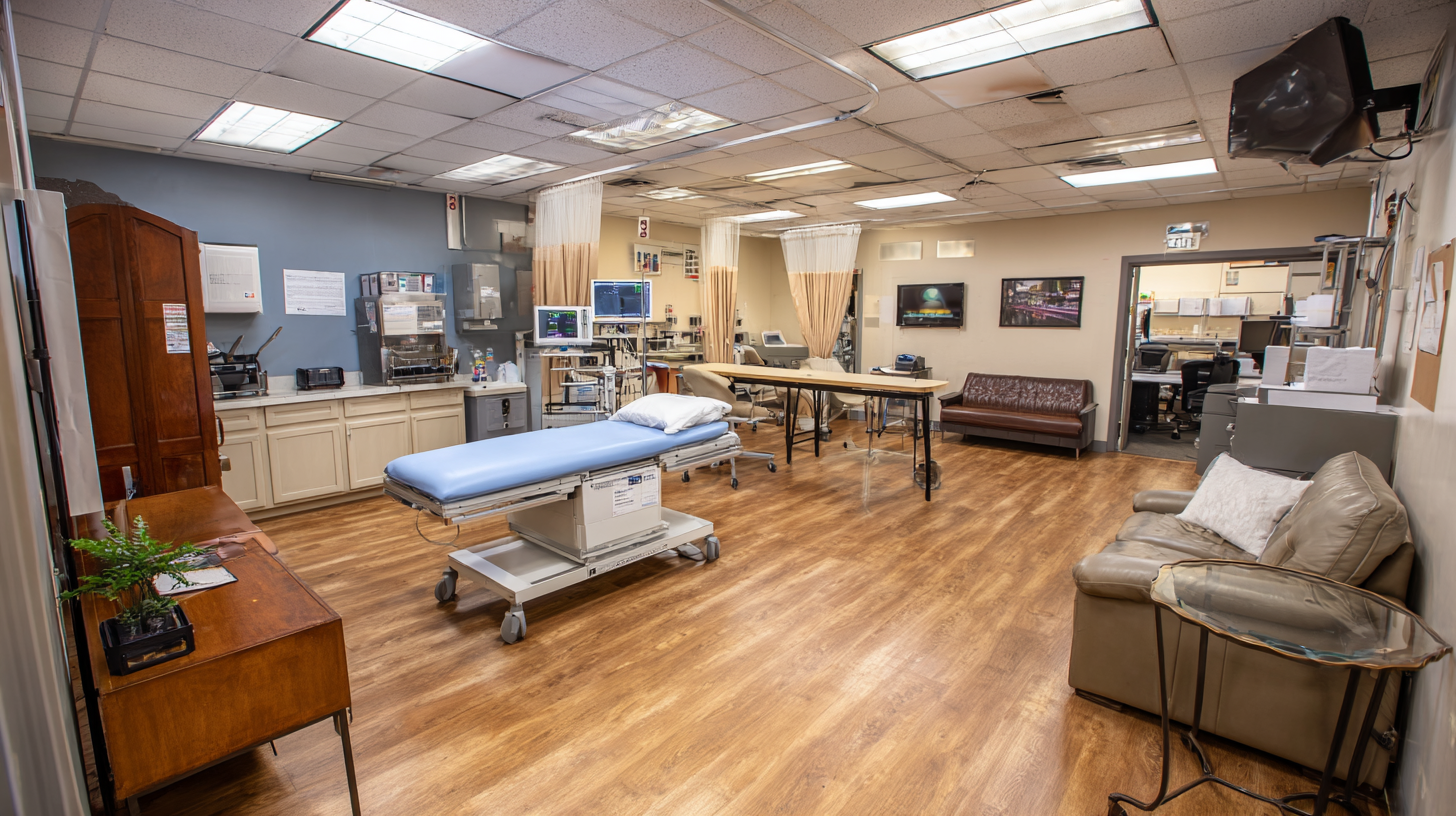
Another interesting point from a study in the Journal of Healthcare Quality is that accredited centers are about 30% more likely to be using the latest tech and updated clinical practices. That’s a big plus — it makes diagnoses more accurate and cuts down on mistakes, which could really impact your health. So, when you’re searching for a diagnostic center, don’t forget to check their accreditation status. It’s a good indicator of the kind of care you’ll be getting, because honestly, you deserve nothing but the best.
Reading Reviews and Testimonials: Insights from Other Patients
When you're trying to find the best diagnostic center nearby, checking out reviews and testimonials from other patients can really give you a lot of helpful insights. I mean, did you know that back in 2021, a Pew Research Center survey found that about 80% of folks see online reviews as just as important as personal recommendations? That just shows how much people are putting weight on what actual patients say when choosing healthcare providers. Listening to others’ experiences can really give you a peek into how good the care is, how professional the staff are, and how accurate their diagnoses tend to be.
**Tip 1:** Don’t just skim over reviews—try to pay attention to the little details. Look for comments about things like how long the wait was, whether the staff explained things well, or what the environment felt like. These little clues can help you figure out if that center matches what you’re looking for.
**Tip 2:** Consider using platforms like Healthgrades or Yelp — they’re pretty popular for healthcare reviews these days. A 2022 report from the National Quality Forum mentioned that more than 70% of patients check out online reviews before deciding on a healthcare provider, so these sites are becoming way more trusted.
And don’t forget, keep in mind that some reviews might be more biased than others. It’s a good idea to see if most feedback is positive or negative, and pay attention to the trends in newer reviews to make sure what you're reading is up-to-date. Taking all this into account can really help you pick the right diagnostic center that suits your needs and gives you peace of mind.
How to Identify the Best Diagnostic Center Near Me for Your Healthcare Needs
| Center Type | Location | Rating | Patient Review Snippet | Specialties |
|---|---|---|---|---|
| Imaging Center | Downtown | 4.5 | "Quick service and friendly staff." | MRI, X-Ray |
| Lab Testing Facility | Suburban Area | 4.2 | "Results came back quickly!" | Blood Tests, Urine Tests |
| Diagnostic Clinic | City Center | 4.8 | "Highly recommend for their professionalism!" | Cancer Screening, Cardiology |
| Health Center | West End | 4.0 | "Staff was nice, but wait times were long." | General Health Check, Immunizations |
| Specialized Center | North Side | 4.6 | "Great experience with knowledgeable doctors!" | Neurology, Endocrinology |
FAQS
: It's essential to ensure that radiologists and technologists are board-certified and have undergone extensive training, as accredited facilities must demonstrate these credentials.
Professionals with over ten years of experience in their specialty can provide a 15% improvement in diagnostic accuracy, highlighting the importance of their experience.
When staff credentials are prominently displayed, studies indicate a 25% increase in trust and higher patient satisfaction rates.
High turnover rates may be a red flag. Stable staffing often indicates a positive work environment conducive to effective training and patient care.
Patient reviews are crucial; a 2021 survey indicated that 80% of healthcare consumers find online reviews as important as personal recommendations.
Look for specific comments on wait times, the thoroughness of explanations by staff, and the overall environment, as these factors can indicate the quality of care.
Platforms like Healthgrades and Yelp are specifically geared toward healthcare reviews and have become trusted sources, with over 70% of patients using them.
Check the pattern of newer reviews and consider the balance of negative versus positive feedback to make sure the insights reflect the latest experiences.
Testimonials provide personal insights into the quality of care and staff professionalism, helping you gauge whether a facility aligns with your healthcare needs.
Evaluate staff qualifications, read patient reviews, consider the experience of the staff, and pay attention to the overall feedback trends to ensure the center meets your healthcare expectations.
Conclusion
Looking for a 'Diagnostic Center Near Me'? It's really important to keep a few things in mind to make sure you get the care you need without any unnecessary hassle. First off, it helps to know what kinds of tests they offer—that could be anything from simple blood work to more advanced molecular diagnostics. Also, take a moment to check out the credentials and experience of the staff; trust me, that stuff makes a big difference. Don't forget about the location and how easy it is to get there—no one wants to deal with a stressful trip just to get tested. And of course, make sure the center is properly accredited and follows quality standards—that's what keeps things safe and reliable.
Reading reviews or patient testimonials can give you a real sense of what to expect and whether the place takes good care of its patients. Here at Zhejiang Pushkang Biotechnology Co., Ltd., we put a big focus on using cutting-edge technology in our diagnostics, especially in specialized areas like coagulation and molecular tests. When you're choosing a center, keeping these factors in mind will help you find the right fit — someone who truly understands your health needs and makes the process a little less daunting.
Related Posts
-
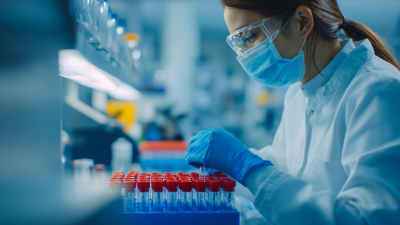
Ultimate Guide to Sourcing Roche IVD Products for Global Buyers
-
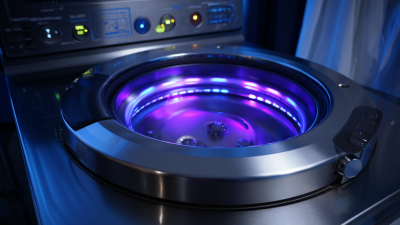
Mastering the Rcf Centrifuge A Step by Step Tutorial for Optimal Performance
-
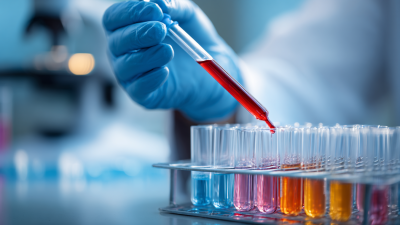
Ultimate Guide to Understanding Point Of Care Testing and Its Impact on Healthcare
-

What is the Significance of Centrifuging Examples in Modern Industry
-

5 Key Reasons Veterinary Care is Essential for Your Pet's Health and Wellbeing
-
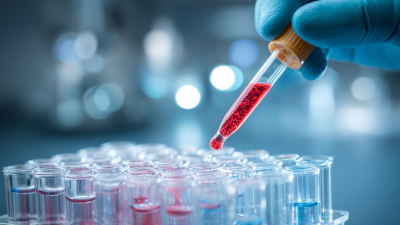
Comprehensive Guide to Understanding For In Vitro Diagnostic Use Only Regulations and Standards

